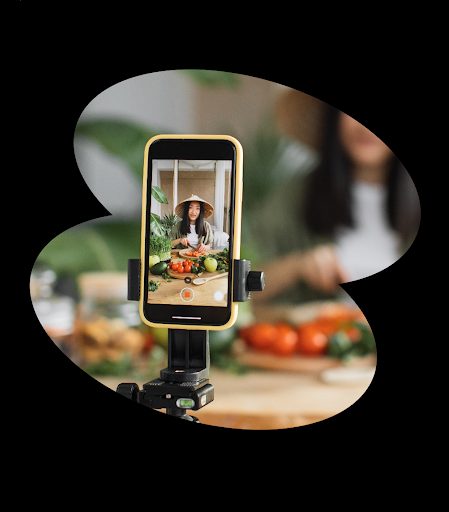How to test, learn, and scale your TikTok campaigns
Keep growing your results by testing, learning, and iterating from the insights you uncover.

You've set your goals and found the campaign solutions to make them happen, and are now starting to measure the results. How do you use those results to keep growing? In this article, we'll explore some simple methodologies for testing, iterating, and scaling what works to continue unlocking business growth.
What is split testing and how does it work?
Split testing is like a science experiment for your performance campaigns. It allows you to make more informed decisions about your marketing strategies and continuously improve your performance over time.
Here's a simple breakdown: first, define a goal for your test. This could be anything from increasing clicks on an ad to getting more people to buy a product. Based on this goal, look for patterns or standout numbers in your campaign metrics and try to identify the variables that could be driving them. For example, maybe you think a specific campaign objective could be the reason for increased conversions. This is your hypothesis. You can test this hypothesis by creating different ad groups that are identical except for the factor you're testing for. By running these ads in parallel, you can validate your hypothesis by monitoring which one performs best.
Best practices for split testing ad performance
Make sure both Events API and Pixel are installed, either directly or through a third-party partner. This will allow you to uncover insights from the complete customer journey beyond the actions they take within the TikTok app.
Use the same copy and creative across ad groups. Don't make edits or changes after the campaign launch.
Run the test for at least 14 days in order to gather reliable results.
In order to test effectively, set a budget of at least 20x CPA based on your campaign history.
You can also expand this approach beyond the campaign level by using incrementality testing — such as Conversion Lift or Sales Lift studies — to validate TikTok's overall value as a channel within your media mix.
Ways to test and scale your ads
You can hone in on the right strategy through testing creative, targeting, bidding, and other ad settings. By regularly testing different variables within your campaigns, you can identify specific factors that have proven to deliver against your marketing objectives. We call these multipliers. Each multiplier will be unique to your business, your target audiences, and your goals.
Here are some tests that we recommend starting with in order to find multipliers that improve targeting, budget allocation and personalization.
Find multipliers that improve targeting scope
Performing targeting split tests can help you to attract and identify new upper-funnel audiences. You can also use it to find the optimal balance between broad targeting and a specific audience pool.
Broad Targeting vs. Custom Audience targeting: restricting your audience enhances precision, but limits expansion. Bidding for broad audience, or co-piloting with Smart Targeting allows our ad systems to fully explore optimal delivery.
Branding-centric objective vs. conversion centric objective: Re-engaging audiences from lower-funnel objectives helps accelerate their journey and yield higher predicted lifetime value. Meanwhile cast a wider net via upper-funnel campaign.
Find multipliers that optimize budget allocation
Testing to find multipliers related to budget allocation can help you to secure customers' lifetime value at any marketing stage. It also allows you to be more agile with your ad spend by focusing resources on winning campaign setup or assets.
Scale your budget to address revenue goals across campaigns: We recommend launching with upper-funnel objectives to reach a broad user base, and then switching your focus to conversion campaigns to secure users' lifetime value.
Combine budget allocation for different goals: We recommended a 4:1 ratio for upper-funnel and mid-funnel campaigns.
Make budget adjustments gradually: To keep performance stable, don't increase budget by more than 50% for each adjustment. Wait for 2 days, and then repeat this process until you reach your target budget.
Find multipliers that enhance personalization
In order to enhance personalized ad targeting and unlock advanced ad solutions, try different approaches to integrating your marketing data with our suite of performance solutions.
Ensure your marketing events are captured: Post back a meaningful volume of events and values related to purchase value, custom events (customized reporting), and offline conversion (eg. in-store visits, purchases) over time.
Advanced solutions: For web campaigns, unlock Video Shopping Ads for catalog by integrating your product catalog data and configuring required conversion events.
Scale with marketing APIs: Create a powerful audience profile across TikTok Business Center, by synchronizing your own customer and campaign data, or your partnered audience data platform with marketing APIs.
Tips to start scaling your campaigns
Plan a long-term campaign budget that matches your ROI goals.
Set up a baseline campaign structure for long-term investment in data connection and high-quality ad accounts
Nurture your ad account by optimizing full-funnel events, conversion value, and extensive customer behaviors across various paths to purchase.
Adopt an always-on performance marketing mindset
Sustainable ad performance and continued growth comes from regularly testing what works and applying those learnings in subsequent campaigns. For the best outcomes, aim for continuous exposure to high-intent TikTok users and continuous presence in your customer's entire purchase journey on TikTok.
Over time, this approach allows you to build a strategy that drives conversions for your business, and will give you a competitive edge in winning loyal customers and interactions.